3D plans for Doncaster Sand House mansion
- Published
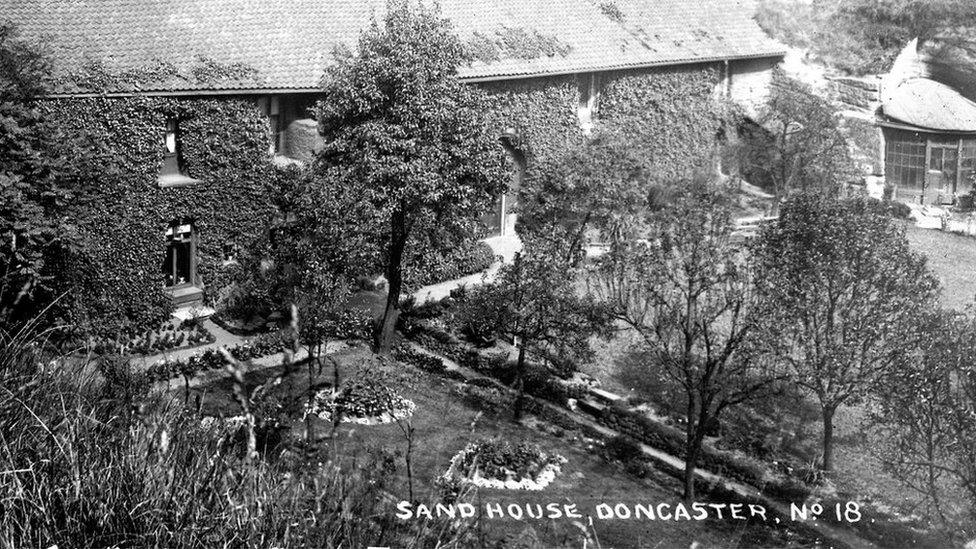
Doncaster Sand House was built from a huge lump of sandstone in a quarry in Doncaster
A grand Victorian mansion carved from a huge rock and buried under landfill and a tower block could be brought back to life with a 3D experience.
Doncaster's Sand House was hewn from a huge lump of sandstone in a quarry by entrepreneur Henry Senior in the 1850s.
The house and grounds were filled with rubbish and, once full, topped with the council's 1960s Silverwood flats.
Now Senior's great-great-grandson wants to create virtual views of the house's carvings and tunnels beneath.
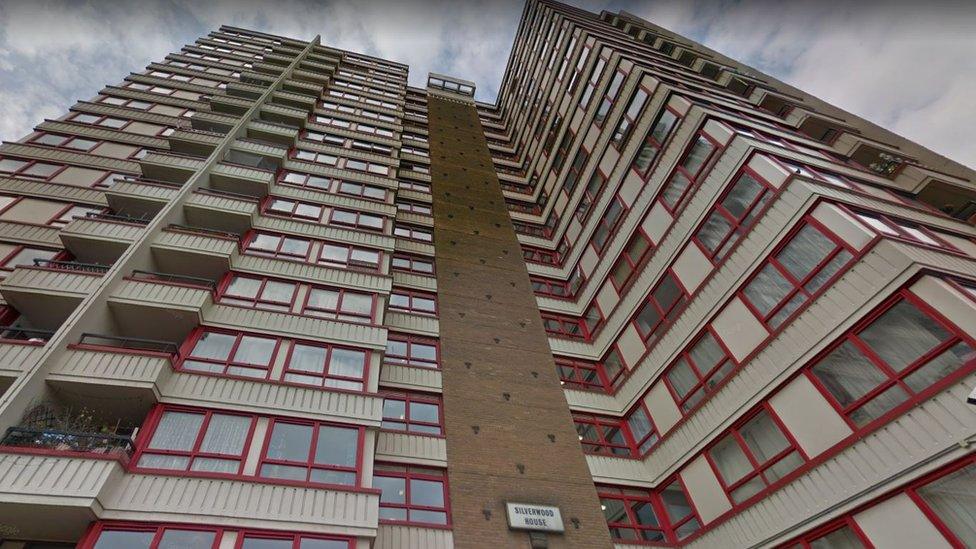
Silverwood House in Doncaster stands on the site of the old Sand House, with the lift shaft above the original two-up-two-down dwelling
Richard Bell said he became aware of his family connections with the Sand House in the 1980s and later launched a charity to give more information about the "remarkable" structure, with walks, talks, and educational events.
Mr Bell is in talks with Doncaster College students about creating the 3D experience.
People would wear a 3D headset to see down the tunnels and marvel at the intricate carvings and the quarry, he said.
The Sand House charity is also discussing a permanent exhibition space at the town's new Museum and Learning Centre, due to open on the site of a former girls' school in 2020.

The Sand House
Henry Senior bought the land in the 1850s
His business interests were sand extraction and house building, and, over the years, he ordered a huge lump of sandstone in the quarry to be hollowed out
A "modest two-up-two-down" expanded into a 10-bedroom mansion
The Sand House had "all the mod-cons a wealthy Victorian businessman would want", Mr Bell says, including a large stable block, ballroom and sunken garden
Hot water and gas lighting were installed - but no electricity
Guests were invited to "explore the network of tunnels and marvel at the intricate carvings" - including cherubs and an elephant
The local authority acquired the building in 1900 and used it as its refuse department
By the 1930s it was full of rubbish so the Sand House landfill was capped and the 17-storey Silverwood House, now next to the A18 flyover, was built in the 1960s
The carved tunnels remained open longer than the house, and hundreds of people have told Mr Bell of how they played in them

One of the most impressive carvings in the tunnels was an elephant with a mahout

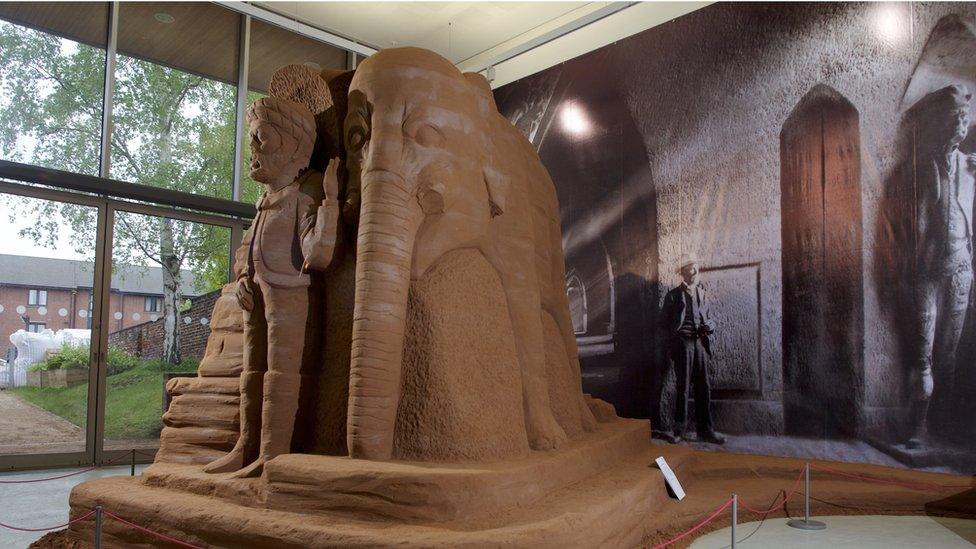
A replica was created from sand for an exhibition in 2012
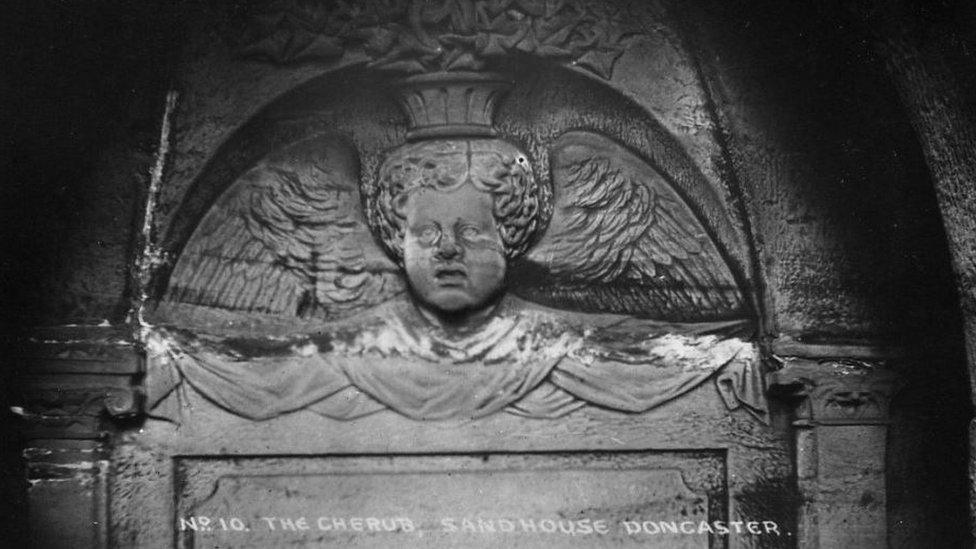
The Cherub stone carving
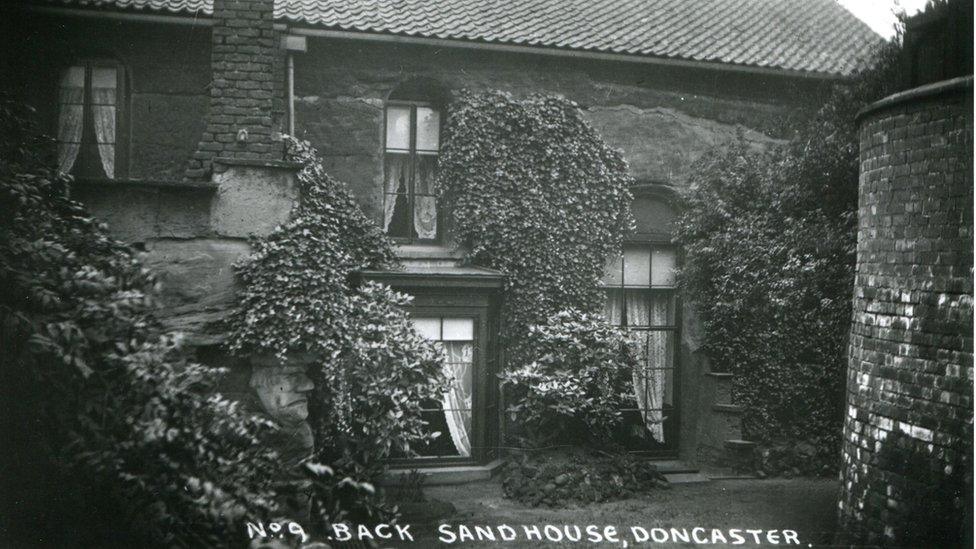
A view of the back of the Sand House